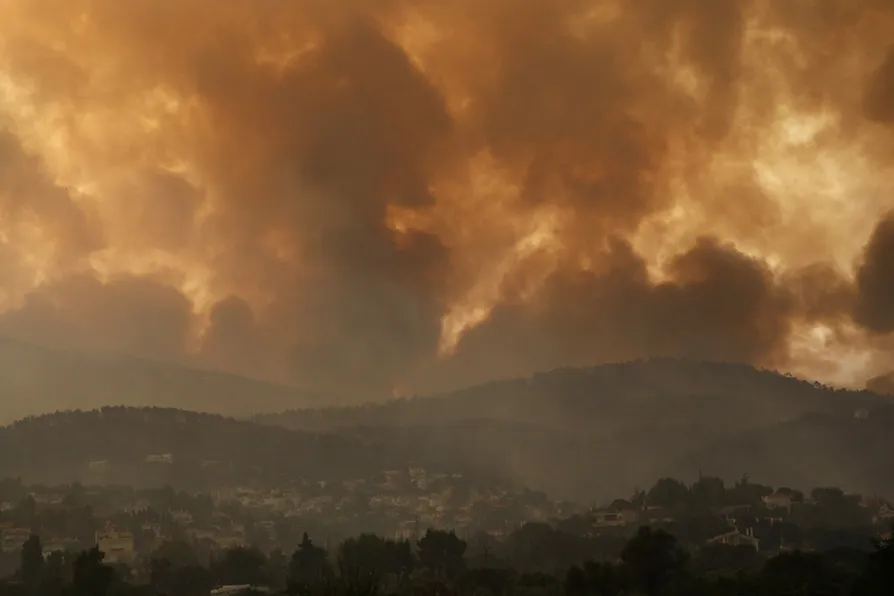
 Smoke spreads over Parnitha mountain during a wildfire in the village of Ippokratios Politia, Greece
Smoke spreads over Parnitha mountain during a wildfire in the village of Ippokratios Politia, Greece
A UN REPORT published today warns that humans are unequivocally driving global warming, with serious consequences – from heatwaves to rising seas and extreme rain – now being experienced around the world.
The dossier, published by the United Nations’ Intergovernmental Panel on Climate Change, says that the world will reach or exceed temperature rises of 1.5°C – a limit that countries have pledged to keep to in order to avoid the most dangerous consequences of global warming – within the next two decades.
Temperature rises will continue until the middle of the century, the report says, and without fast, deep reductions in greenhouse gases will, over the course of the century, exceed both the 1.5°C target and maximum limit of 2°C set by the 2015 Paris climate treaty.
















